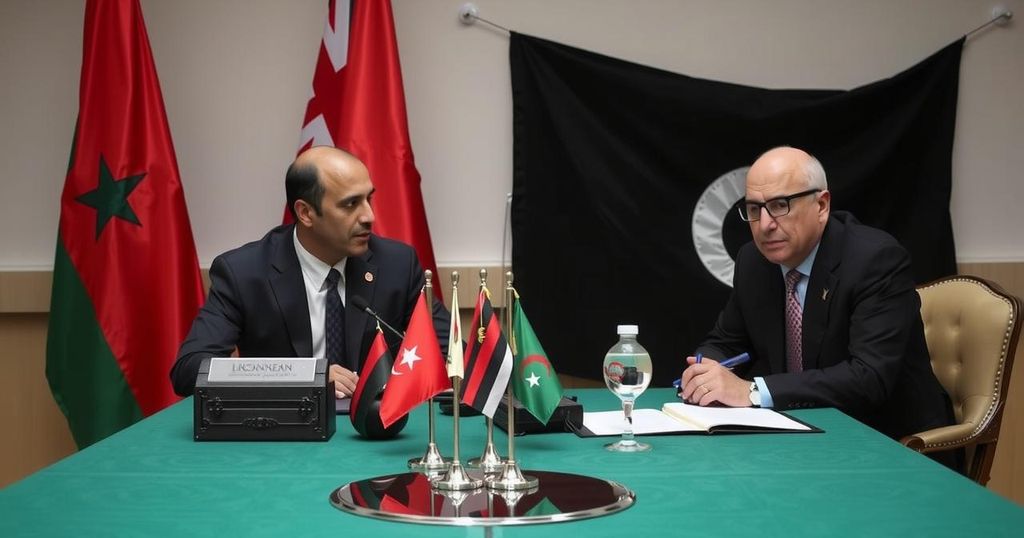Libyan Rivals Engage in Vital Talks in Morocco to Resolve Political Deadlock

Delegations from rival Libyan institutions met in Morocco to address a political deadlock. The discussions involved the High Council of State and the House of Representatives, focusing on unity and preparing for credible elections. Political processes have stalled since the collapse of December 2021 elections due to candidate disputes. The session is part of ongoing efforts to resolve conflicts stemming from Libya’s divided governance.
Delegations from Libya’s rival governmental institutions convened in Morocco on Wednesday in an effort to resolve a persistent political impasse and avert a resurgence of chaos within the country. In Bouznika, close to the Moroccan capital, discussions took place between the High Council of State, situated in Tripoli, and the House of Representatives, based in Benghazi.
Moroccan Foreign Minister Nasser Bourita, addressing the assembly, emphasized the necessity for collaborative efforts among participants to uphold the unity of Libya and to facilitate credible electoral processes. He asserted,
“The numerous international and regional conferences on Libya will not replace the inter-Libyan dialogue which has credibility and ownership.”
The political framework aimed at ending the prolonged institutional division and conflict in Libya has remained stagnant since the anticipated elections in December 2021 were derailed, primarily due to contentions over candidate qualifications. The House of Representatives, established as the national parliament in 2014, originally held a four-year term intended to oversee a political transition.
The 2015 Libyan Political Agreement, formulated in Skhirate, led to the establishment of the High State Council as an advisory second chamber. However, complications arose when the House of Representatives appointed a rival government claiming the expiration of the national unity government’s mandate. This appointment has further entrenched the divisions between eastern and western Libya.
The political landscape in Libya has been fraught with instability and conflict following the fall of long-time leader Muammar Qaddafi in 2011. The country has been politically bifurcated since 2014, with rival administrations emerging in the east and west. The ongoing discord has impeded efforts to achieve national unity and effective governance, leading to a complex situation characterized by competing legislative bodies. Attempts at political reconciliation have been frequent but have often stalled, further complicating the prospects for lasting peace and electoral legitimacy.
The recent talks in Morocco mark a significant, yet challenging, effort towards reconciling the differences between Libya’s rival governmental entities. The continued dialogue highlights the importance of maintaining unity and steering the country towards credible elections, particularly following years of political deadlock and civil strife. The outcome of these discussions will be pivotal for Libya’s future stability and governance.
Original Source: www.arabnews.com








